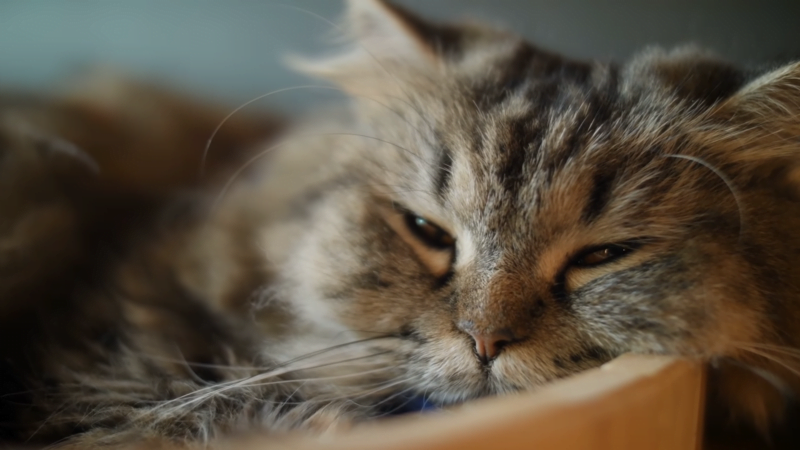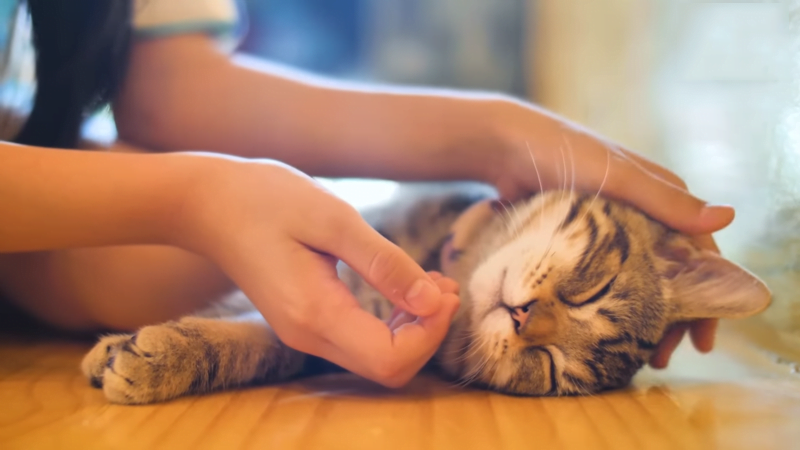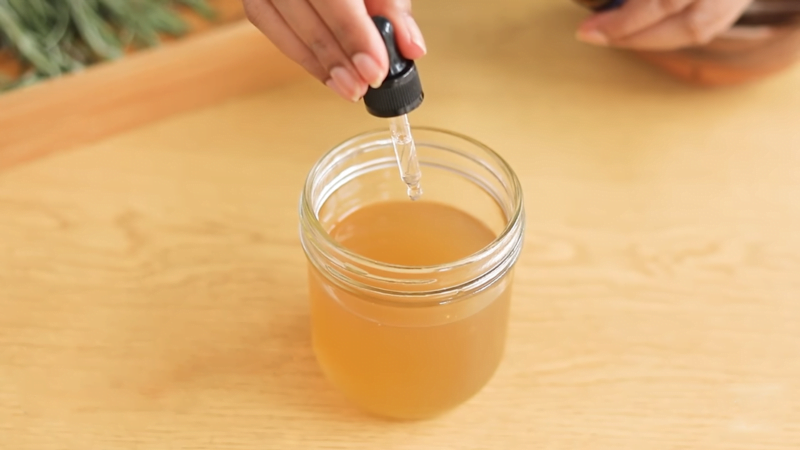No products in the cart.
Heart disease in cats is a critical health issue that requires attention and understanding from pet owners. While our feline companions may seem resilient, they are susceptible to various cardiac conditions that can affect their quality of life.
This blog will explore the nuances of heart disease in cats, including symptoms, causes, and steps that pet owners can take to protect beloved feline companions’ heart health.
Understanding Heart Disease in Cats

Heart disease is a complicated medical condition and the structure or function of the heart in cats can be affected. It encompasses various disorders like cardiomyopathy and valvular disease, influenced by genetic predispositions, environmental factors, and physiological processes unique to felines. Recognizing its diverse presentations and nuances is vital for early detection and effective management, ensuring better outcomes for affected cats.
Symptoms of Heart Disease in Cats
To get the early detection and intervention, it is so crucial to recognize the symptoms of heart disease in cats. These are the main signs that we should consider:
- Lethargy: Cats with heart disease may become lethargic, showing decreased interest in usual activities and spending more time resting.
- Difficulty breathing: Cats may exhibit labored breathing or increased respiratory effort, which can be seen as rapid or shallow breathing.
- Coughing: Some cats with heart disease may develop a persistent cough, often described as dry or hacking.
- Loss of appetite: Heart disease can cause cats to lose interest in food or exhibit decreased appetite, leading to weight loss over time.
- Weight loss: Despite a normal or decreased appetite, cats with heart disease may experience weight loss due to the body’s increased energy demands or decreased ability to absorb nutrients.
- Hind limb paralysis: In severe cases, heart disease can lead to hind limb paralysis due to blood clots (thromboembolism) blocking circulation to the hind limbs.
- Abdominal fluid buildup: Heart disease may result in fluid accumulation in the abdomen (ascites), causing it to appear distended or swollen.
These symptoms may vary in severity and may not all be present in every cat with heart disease. Additionally, cats may exhibit other signs such as pale or bluish gums, weakness, collapse, or sudden death in severe cases. Prompt recognition of these symptoms is essential for early diagnosis and management of heart disease in cats.
What Causes Heart Disease in Cats?
Causes of heart disease in cats:
- Genetic predispositions: Certain breeds have a higher risk of conditions like hypertrophic cardiomyopathy (HCM).
- Underlying health conditions: Hypertension and hyperthyroidism in cats can strain the heart.
- Infections: Viral infections like FeLV and FIV can weaken the heart muscle.
- Dietary factors: Imbalances or deficiencies, such as taurine deficiency, can contribute to heart disease.
- Other factors: Environmental toxins and age-related changes can also play a role.
Understanding these underlying causes is essential for veterinarians to diagnose, treat, and manage heart disease effectively in cats. Early detection and intervention can help improve the prognosis and quality of life for affected felines.
How Common is Heart Disease in Cats?

Heart disease is relatively common in cats and hypertrophic cardiomyopathy (HCM) is particularly prevalent as a certain condition. Studies suggest that HCM affects around 15% of all cats and is the most commonly diagnosed cardiac condition in felines. Dilated cardiomyopathy (DCM) and valvular disease are the other forms of heart disease and they can albeit less frequently.
To have effective management for cats with heart disease and improve their outcomes and quality of life, it is so important to give the prevalence, routine veterinary check-ups and screenings.
Heart Disease in Cats Life Expectancy
Heart disease can significantly impact the life expectancy of cats, depending on factors such as the severity of the condition and the effectiveness of treatment. When the heart disease progresses rapidly or if complications arise, these cats may experience a shortened lifespan compared to healthy cats.
However, with proper management, including medication, dietary changes, and regular veterinary care, many cats with heart disease can lead fulfilling lives for an extended period. Timely identification and proactive management play pivotal roles in optimizing both the longevity and well-being of cats grappling with heart disease.
Is Heart Disease Contagious in Cats?
Heart disease in cats is not contagious. It is not transmitted from one cat to another through direct contact or exposure. Instead, heart disease in cats typically develops due to a combination of genetic predispositions, underlying health conditions, environmental factors, and dietary influences. Therefore, there is no need for concern regarding the spread of heart disease among cats in multi-cat households or through interactions with other felines.
How to Prevent Heart Disease in Cats?

Preventing heart disease in cats involves several key measures, they may include:
- Balanced diet: Provide a diet rich in essential nutrients, particularly taurine, which is crucial for feline heart health. Choose high-quality cat food formulated to meet their nutritional needs.
- Regular veterinary check-ups: Schedule routine visits to the veterinarian for comprehensive physical examinations and screenings. Early detection of any potential heart issues can facilitate timely intervention.
- Weight management: Maintain your cat at a healthy weight through proper diet and regular exercise. Monitoring cats’ food intake and encouraging physical activity are so important because obesity is a risk factor for heart disease in cats.
- Environmental safety: To provide a safe indoor environment and reduce the risk of heart-related stressors, minimizing exposure to environmental toxins is necessary, including cigarette smoke, household chemicals and plants that may be toxic to cats.
- Vaccinations and parasite control: Ensure your cat is up-to-date on vaccinations to prevent infectious diseases that can affect heart health. Additionally, use appropriate preventive measures to control parasites like heartworms, which can cause heart disease in cats.
The risk of heart disease in cats can be reduced and their overall wellness can be promoted when following these preventive measures and maintaining a proactive approach to your cat’s health.
What Food is Good for Cats with Heart Disease?
Food for cats with heart disease should ideally be formulated to support heart health and meet their specific dietary needs. Here are some considerations for selecting appropriate food:
- Low sodium: Choose cat food with reduced sodium levels to help manage fluid retention and lower blood pressure, which are common concerns in cats with heart disease.
- Taurine-rich: Ensure the food contains adequate levels of taurine, an amino acid essential for heart function. Taurine deficiency can contribute to the development or exacerbation of heart disease in cats.
- High-quality protein: Opt for cat food with high-quality protein sources to support overall health and muscle function. Lean meats like chicken or fish can be beneficial.
- Omega-3 fatty acids: Supplying cats with anti-inflammatory properties like omega-3 fatty acids can support heart health.
- Balanced nutrition: Choose cat food that provides balanced nutrition to meet all of your cat’s dietary requirements. To ensure the food you select is appropriate for your cat’s specific health needs, veterinarian should be consulted.
Depending on the severity and type of heart condition, nutritional requirements may be different and to determine the best diet for your cat with heart disease, working closely with a veterinarian is essential. Your vet can provide tailored dietary recommendations to support your cat’s overall health and manage their specific cardiac issues.
CBD Oil for Cats with Heart Disease
CBD oil has emerged as a potential option for cats dealing with heart disease. Some evidence of improvement in cats’ overall quality of life have been shared by many pet owners, including reduced stress and inflammation.
It’s important to approach CBD oil use cautiously and consult with a veterinarian beforehand. They can offer personalized advice on dosage and ensure it complements your cat’s treatment plan. Pet CBD Club offers a variety of CBD products tailored for pets, providing a trusted source for those considering CBD as part of their cat’s care routine.
Conclusion
Heart disease in cats is a complex and significant health concern that requires attention from pet owners. By understanding the symptoms, causes, and preventive measures, we can actively protect our feline companions’ heart health and ensure their overall well-being. With proactive veterinary care, a balanced diet, and a supportive environment, we can help our cats lead happy, healthy lives free from the burdens of heart disease.
Hello, I am Hazel Bennett, an experienced copywriter specializing in the fascinating topic of CBD for dogs. With a passion for pet wellness and extensive knowledge of CBD’s potential benefits, I am here to provide you with informative and engaging content.


